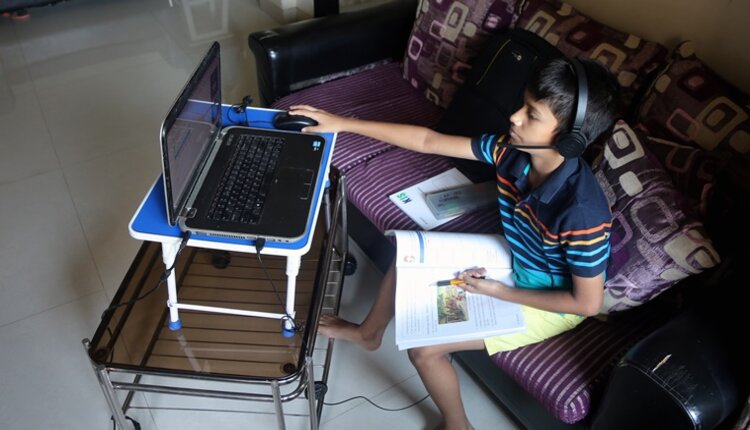COVID-19: How GIIS is delivering online education to its 15000 students in 7 countries
GIIS has developed a cloud enabled scalable virtual environment to support over fifteen thousand students from 21 campuses in 7 countries. A multi country Global Student Exchange was recently conducted, which saw the participation of students from 12 campuses. As a part of it, ideas relating to the impact of the Coronavirus were discussed
The education sector has been affected very badly by the COVID-19 pandemic. However inspite of all odds some schools have been able to provide unhindered delivery of classroom sessions. Global Indian International School (GIIS), is one such multi-country educational institution. With a presence in seven countries, and having over fifteen thousand students, it was a daunting task to continue operations in an uninterrupted manner. The teachers at GIIS have now been delivering education remotely for over a month. A strategy was adopted, post the virus spread to take the parents, teachers and other stakeholders into confidence and make them aware about how the technical capabilities will empower GIIS to be in a business-as-usual mode.
GIIS has developed a cloud enabled scalable virtual environment to support over fifteen thousand students from 21 campuses in 7 countries. A multi country Global Student Exchange was recently conducted, which saw the participation of students from 12 campuses. As a part of it, ideas relating to the Global impact of the Coronavirus were discussed.
Taking teachers and parents into confidence
The parents were invited on the ‘Zoom Webinars’ platform to make them aware about the virtual technology environment available with GIIS and how will it continue to provide classroom like education to the students. Not only the usual subjects but also Music, PE, etc. “GIIS conducted many webinars with the parents to introduce them to the platforms available and the education delivery model. At GIIS, every country has their own infrastructure and the classes are delivered from the respective centres. There is no centralisation in education delivery. The shared services model is used in support teams, lesson plan, educational resources, etc,” says Rajiv Bansal, Director- Operations, GIIS India.
Another major area was training the teachers on the technology tools. The teaching community is habitual with the physical classroom environment and interaction with the students. They were trained on the technology platforms with respect to pedagogy and skills to use the platform.
Students at such a large scale were being supported through technology for the first time and thus GIIS pre-empted technical snags in the initial stages. “A helpdesk of 50-60 people was constituted to address the queries in the fastest time possible. Customer experience was the key. The users with a bad experience may not come the next time, hence it was critical to make them assured of the reliability of the technology platform,” says Bansal.
The Zoom Webinars – MyGIIS combo
GIIS has procured the enterprise version of the Zoom platform for delivering lectures, viz. ‘Zoom Webinars’. Separate licenses have been procured and this is a much more secured version from the zoom’s publicly available platform, ‘Zoom Meetings’, which is a freeware. Over fifteen thousand students have been using it for more than a month. On an average every student is accessing the platform for hundred hours per month. “There are many functionalities in the enterprise version, which gives the feel of a Live classroom environment. It provides the control of the video session in the hands of the teacher, who has the access to all the audio and the video controls, including the whiteboard,” informs Bansal.
The Zoom Webinars has been integrated with the ERP, built inhouse, viz. ‘MyGIIS’ to make it easy for the student and the parent community to access the platform and interact. The ERP handles both the education and non education related functions – The interaction between teachers and parents; fees; attendance; student’s progress report, etc. The ERP also helps in scheduling the classes for various subjects. The access is as easy as signing an email account. Post signing-in, there is a Zoom Webinars link available, which can be clicked upon to attend the class. Every student is given a unique ID and password to access the ERP platform. The relevant class related lectures can be accessed on the platform and the associated study material is made available via Google classrooms. The class timetable is seamlessly integrated with myGIIS ERP. “The theory-heavy classes are delivered. Moreover subjects with extra-curricular and physical activities are also included. Music, Physical Education classes are also conducted over Zoom Webinars,” says Bansal.
Recently, GIIS also conducted examinations over the online platform. The backend IT infrastructure is cloud enabled hosted by a cloud service provider.



